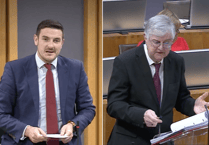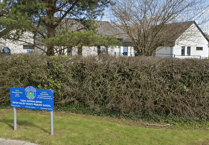New figures captured by RSPCA Cymru show that puppy breeding investigations and prosecutions taken forward by local authorities in Wales have risen significantly.
The animal welfare charity asked all 22 local authorities in Wales - under the Freedom of Information Act - how they are currently tackling illegal puppy breeding in their respective counties.
It has been revealed that local authorities received almost 1,000 enquiries from concerned members of the public in 2020 and 2021 - with this figure having increased by 6.75 percent in 2021.
Powys had the second highest amount of enquiries in Wales, with 61 in 2020 and 50 in 2021. Only Carmarthenshire, with 221 in 2020 and 149 in 2021, received more enquiries from people concerned about illegal puppy breeding.
Local authorities across the country undertook almost 600 investigations over the two years, with the number of investigations increasing by 62 percent in 2021, compared to 2020.
The number of investigations in Powys saw a slight in 2021, rising to 37 - up from 33 during 2020.
The number of prosecutions undertaken by local authorities also doubled in 2021 (eight) compared to 2020 (four).
In Powys, there was one prosecution relating to puppy breeding in 2021.
Local authorities are responsible in law for the licensing of breeding establishments, and ensuring they uphold the conditions of their licences.
RSPCA Cymru’s public affairs officer Billie-Jade Thomas said: “It is encouraging to see local authorities acting on information given to them by members of the public, and may suggest that puppy purchasers are becoming more savvy, and are listening to advice when it comes to puppy farms and breeders.
“But these figures demonstrate there’s still significant issues with poor puppy breeding practices in Wales - and we’re worried they may only be the tip of the iceberg.”
The RSPCA urges anyone who has concerns about puppy selling, or if you are concerned that someone is selling puppies without a licence, to contact the local trading standards team, who are responsible for the licensing of breeders. The RSPCA will assist when necessary if there is a welfare issue and also supports local authorities by rehoming animals that are rescued from illegal breeders.
Ms Thomas added: “While we’d always encourage people to adopt a rescue dog instead, we know that lots of families want to take on a puppy. To help them ensure they find a responsible breeder who prioritises the health and welfare of the dogs we believe it is incredibly important that they use free tools such as the Puppy Contract.
“Good breeding and care can help ensure puppies and their parents have happy and healthy lives. Irresponsible breeding and poor care can cause health and behavioural problems in puppies and stress and expense for owners - and sadly these new statistics suggest this is still all too common in Wales.”
Members of the public can find out more information about buying a puppy online. The Puppy Contract can be downloaded for free from www.puppycontract.org.uk.
The Puppy Contract is a guide to how to responsibly source a puppy which can help prospective purchasers find a happy, healthy dog.
Those concerned about a breach of licensing regulation should contact their local council. Separately to this, anyone with dog welfare concerns can contact the RSPCA on 0300 1234 999 or consult the charity’s website at www.rspca.org.uk/




